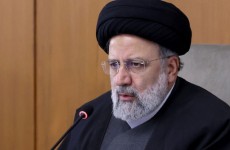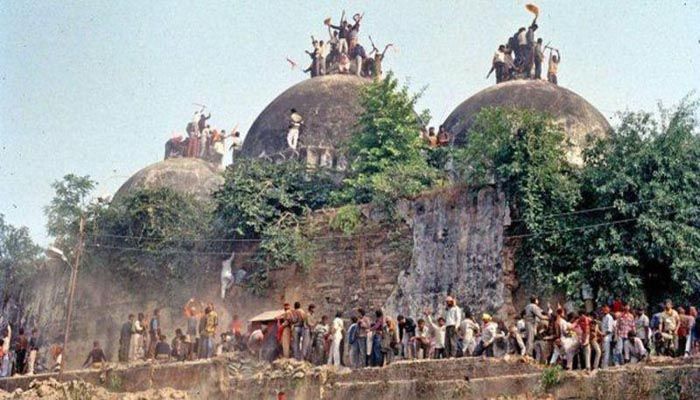
03 May, 2023 13:38

Photo: Collected
For the fourth consecutive year, the bipartisan United States Commission on International Religious Freedom (USCIRF) has advised that the US administration should designate India as a ‘Country of Particular Concern,’ despite this recommendation not having been accepted since 2020.
In its annual report presented on Monday, May 1, USCIRF said it had recommended the re-designation of 12 countries as CPCs, including Iran and Pakistan. Besides, it recommended five additional CPCs status for Afghanistan, Nigeria, Syria, Vietnam and India. For the first time, USCIRF has proposed to include Sri Lanka in the “special watch list” or SWL.
The USCIRF’s 2023 annual report stated that conditions for religious freedom in India “continued to worsen” in 2022. “Throughout the year, the Indian government at the national, state, and local levels promoted and enforced religiously discriminatory policies, including laws targeting religious conversion, interfaith relationships, the wearing of hijabs, and cow slaughter, which negatively impact Muslims, Christians, Sikhs, Dalits, and Adivasis (indigenous peoples and scheduled tribes),” said the report.
It noted that the US state department has not designated India, along with Afghanistan, Nigeria or Syria to CPC status “despite USCIRF’s recommendations to do so and its own reporting documenting the nature and extent of the religious freedom violations in those countries”.
It has been recommending India for the designation since 2020. Besides India, the US department has been largely ignoring USCIRF’s suggestion for a longer period for Nigeria and Syria, both of whom had been recommended as CPC since 2009 and 2014, respectively.
Further, the United States has also refused similar advice on Afghanistan since 2022, despite the country being now run by the Taliban government. The Taliban is classified as an “entity of particular concern”, but Afghanistan is not designated as CPC as it would mean officially recognising that the Taliban is the ruling regime.
The USCIRF reminded that it had expressed “tremendous disappointment that the state department failed to include India and Nigeria among its list of CPCs” in November 2022.
The directives put forth by USCIRF, an autonomous and cross-party federal government organisation responsible for scrutinising, examining, and disclosing global religious freedom violations, are non-obligatory for the US state department
Incidentally, the US state department also has the leeway on imposing sanctions on even those countries that are designated as CPC. For example, the department gave a waiver on sanctions on four of the 12 countries designated as CPC.
Releasing the report on Monday, USCIRF Chair Nury Turkel said urged the Biden administration to implement USCIRF’s recommendations – in particular, to designate the countries recommended as CPCs, and for the SWL, and to review US policy toward the four CPC-designated countries for which waivers were issued on taking any action. “We also stress the importance of Congress acting to prohibit any person from receiving compensation for lobbying on behalf of foreign adversaries, including those engaging in particularly severe violations of the right to freedom of religion of belief,” he said.
In the India section of the annual report, the USCIRF observed that India’s constitution established the nation as a secular, democratic republic and there are constitutional provisions that grant freedom of religion. “Despite these secular principles, since 2014, the Indian government – led by the BJP – has facilitated and supported national and state-level policies that undermine religious freedom for minority groups,” it said.
Further, the Commission said that the government continued to “suppress critical voices – particularly religious minorities and those advocating on their behalf – including through surveillance, harassment, demolition of property, and detention under the Unlawful Activities Prevention Act (UAPA) and by targeting nongovernmental organisations (NGOs) under the Foreign Contribution Regulation Act (FCRA)”.
As in previous years, USCIRF made four recommendations for the US government about India. Along with designating India as a “Country of Particular Concern”, it also called for the US government to condemn ongoing religious freedom violations and impose targeted sanctions on Indian government officials and agencies.
The USCIRF also called on the US Congress to raise “religious freedom issues in the U.S.-India bilateral relationship and highlight concerns through hearings, briefings, letters, and congressional delegations”.
In October 2019, the US House foreign affairs sub-committee on Asia and Pacific held a contentious hearing on India’s human rights record against the backdrop of the blanket communication ban in Kashmir after the dilution of Article 370 and the widespread protests against the then Citizenship Amendment Bill (which can since become an Act).
After the USCIRF had issued a country update on India last year, the Ministry of External Affairs again accused the congressional body of making “biased and inaccurate observations”. “Their tendency to consistently misrepresent facts shows a lack of understanding of India, its constitutional framework, plurality and robust democratic system,” said MEA spokesperson Arindam Bagchi in November 2022. The spokesperson had also stated that India did not protest the USCRIF’s observation as it was not a US government body, but a congressional organisation.
Following the 2002 Gujarat riots, Indian Prime Minister Narendra Modi, who was the Gujarat Chief Minister at the time, was condemned for his involvement by the USCIRF. As a result, in 2005, he was barred from obtaining a US visa under the 1998 US International Religious Freedom Act (IRFA).
A US state department spokesperson had last November cited Washington’s withdrawal of the visa ban and grant of immunity after Modi became PM in 2014 to defend the Joe Biden administration’s decision to grant immunity from a lawsuit to the Saudi Crown Prince over the murder of journalist Jamal Khashoggi. An upset India had said that there was no need for that comment on PM Modi as it was “neither relevant, necessary or contextual”.
News source: The Wire
আপনার মন্তব্য